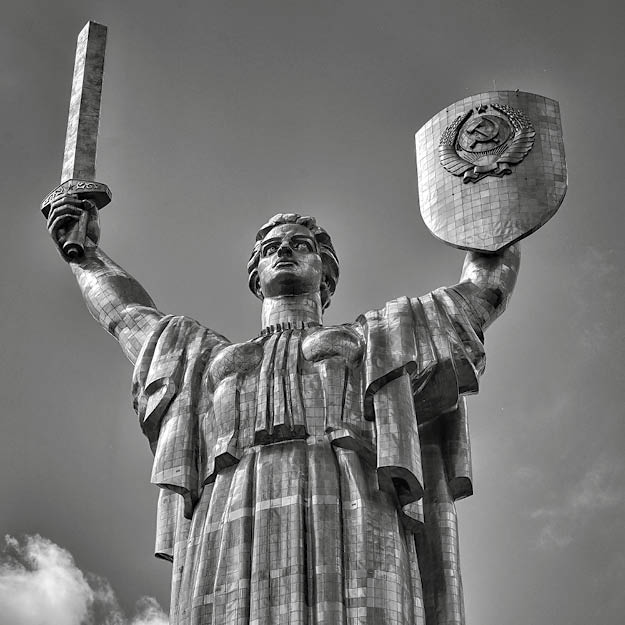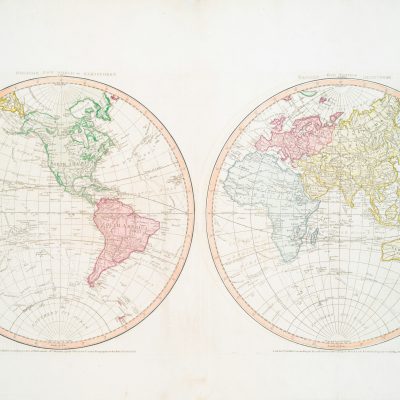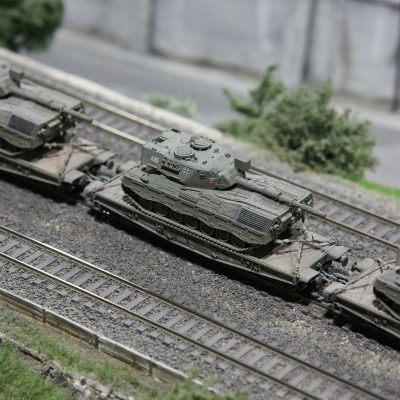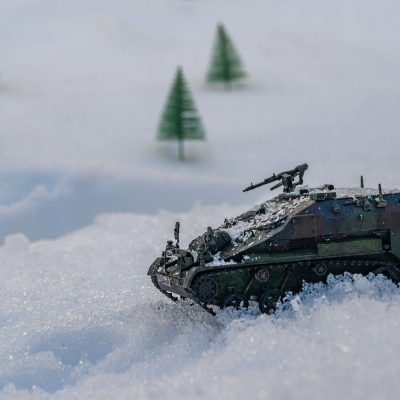[EN] Crise ukrainienne: repenser la sécurité en Europe
Texte publié en français dans Le Monde le 9 février 2022.

Le rêve des Européens d’être entourés de partenaires et d’amis dans tout leur voisinage est loin de la réalité aujourd’hui : l’Europe est entourée de zones de conflit et de risque, de la Russie à l’Afrique du Nord, du Sahel au Moyen-Orient. Au-delà de leurs spécificités, ces évolutions négatives sont également le résultat d’une responsabilité partagée, à la suite d’une série d’erreurs ou de malentendus de part et d’autre. Nous n’avons pas écouté « l’autre », nous n’avons pas correctement évalué les changements en cours, en termes d’opportunités ou de risques, et surtout, nous n’avons pas su développer une véritable politique étrangère commune !
L’Ukraine en est un exemple. Il s’agit d’une zone de conflit latent depuis la fin de l’Union soviétique, accentué par son histoire commune avec la Russie et des sensibilités particulières des deux côtés. Rappelons-nous son évolution depuis 1991 : dès le début, son avenir a fait partie des différends et des « accords sur les désaccords » entre Russes et Occidentaux. En réalité, la Russie n’a jamais accepté la souveraineté de l’Ukraine.
En annexant la Crimée et en s’ingérant de manière agressive dans l’est de l’Ukraine, la Russie joue avec le feu. Elle cherche à tout prix à retrouver sa position de grande puissance. Elle veut être à nouveau mise sur un pied d’égalité avec les Américains, par le biais de discussions bilatérales directes. L’UE, en partie désunie vis-à-vis de ses voisins orientaux, est reléguée au second plan, malgré les efforts de la France et de l’Allemagne, notamment dans le cadre du format « Normandie ».
En Occident, en particulier au sein de l’Alliance atlantique, la politique à l’égard de la Russie semble faire marche arrière. Les signaux positifs et les opportunités d’il y a vingt ans sont oubliés. C’est l’orgueil de la victoire qui règne, le refus de considérer la Russie autrement que comme un ennemi vaincu par l’histoire. Les conséquences sont évidentes : le risque de conflit est sérieux, même par accident et/ou provocation.
Cependant, les réflexions de la France et de l’Allemagne sur l’Ukraine à la fin des années 1990 n’ont pas perdu de leur pertinence pour une solution politique au conflit, qui serait positive pour l’Ukraine et pour l’Europe. Le pays formerait un pont au sein de cette nouvelle Europe, entre « l’ex-Ouest et l’ex-Est », sur la base d’une garantie de son intégrité territoriale de la part de la Russie, des États-Unis, de la Pologne, la France et l’Allemagne, sur la non-adhésion de l’Ukraine à l’Alliance atlantique, sur une orientation fédérale dans ses structures internes, sur un statut spécial à négocier pour la Crimée, sur une association avec l’Union européenne et la nouvelle organisation économique à l’Est, ainsi que sur une clause de révision après 25 ans.
Au-delà de cela, nous devons de toute urgence nous ressaisir et revenir à un logiciel européen différent. Nous n’avons pas besoin de réinventer la roue. Nous devons revenir à une diplomatie créative, inspirée par les débats prometteurs des années 1990, en établissant un dialogue permanent entre toutes les nations européennes, en proposant un nouveau mode de résolution des crises. À créer : un Conseil européen de sécurité. À relancer : un engagement collectif en faveur du contrôle des armements et du désarmement. À réinventer : tout le programme paneuropéen oublié – de la CSCE à l’OSCE ou à la Charte de Paris – mais cette fois-ci de manière sérieuse !
Quel serait l’objectif ? Une architecture européenne commune qui inclurait toutes les questions majeures des accords d’Helsinki : un marché paneuropéen, un marché commun de l’énergie, une coopération en matière de sécurité intérieure, de droits de l’homme, de protection de l’environnement, de coopération culturelle et un système de sécurité permanent pour la prévention des crises. Il y a vingt ans, nous avons manqué de peu un accord de coopération global entre la Russie et l’Union européenne : l’accord de coopération et de partenariat de 1997 n’a pas été renouvelé. Mais la question demeure.
Pour les Européens, il va sans dire que leur objectif d’une défense européenne commune doit être poursuivi. Il s’agit d’une avancée majeure dans la consolidation politique de l’Union, qui devra inclure une révision générale des relations entre l’UE et les États-Unis, y compris en matière de défense. Il s’agit d’une vision à long terme, qui devra nécessairement être développée par étapes, et qui pourrait signifier que les alliances créées il y a 75 ans changeront de nature.
Il est temps que l’Union européenne et les Européens se réveillent et s’engagent courageusement à relever les grands défis qui restent à résoudre sur leur territoire. L’Ukraine est la première urgence, l’autre doit suivre : les Balkans.





